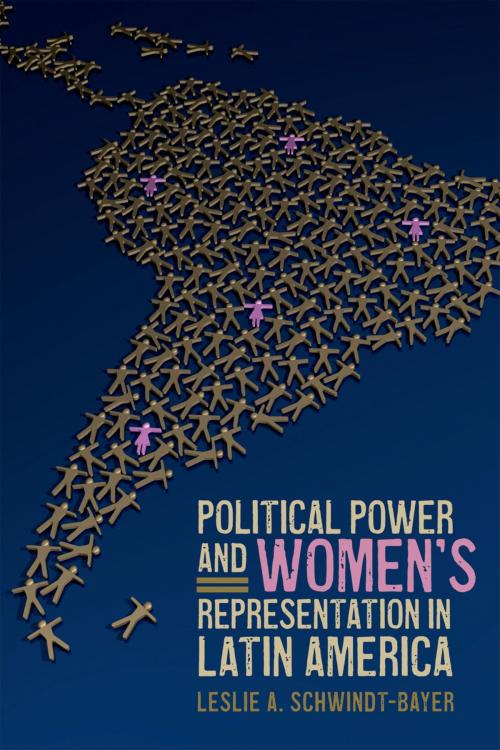Political Power and Women's Representation in Latin America
Nonfiction, Social & Cultural Studies, Political Science, International, Foreign Legal Systems, Politics, Practical Politics, Social Science, Gender Studies, Women&| Author: | Leslie A. Schwindt-Bayer | ISBN: | 9780190453480 |
| Publisher: | Oxford University Press | Publication: | September 30, 2010 |
| Imprint: | Oxford University Press | Language: | English |
| Author: | Leslie A. Schwindt-Bayer |
| ISBN: | 9780190453480 |
| Publisher: | Oxford University Press |
| Publication: | September 30, 2010 |
| Imprint: | Oxford University Press |
| Language: | English |
The number of women elected to Latin American legislatures has grown significantly over the past thirty years. This increase in the number of women elected to national office is due, in large part, to gender-friendly electoral rules such as gender quotas and proportional electoral systems, and it has, in turn, fostered constituent support for representative democracy. Still, this book argues that women are gaining political voice and bringing women's issues to state agendas, but they are not gaining political power. Women are marginalized by the male majority in office and relegated to the least powerful committees and leadership posts, hindering progress toward real political equality. In Political Power and Women's Representation in Latin America, Leslie Schwindt-Bayer examines the causes and consequences of women's representation in Latin America. She does so by asking a series of politically relevant and theoretically challenging questions, including why the numbers of women in office have increased in some countries but vary across others; what the presence of women in office means for the way representatives legislate; and what consequences the election of women bears for representative democracy more generally. Schwindt-Bayer articulates a comprehensive theory of women's representation that analyzes and connects trends in relation to four facets of political representation: formal, descriptive, substantive and symbolic. She then tests this theory empirically using aggregate data from all eighteen Latin American democracies and original fieldwork in Argentina, Colombia and Costa Rica. Ultimately, this book communicates the complex and often incomplete nature of women's political representation in Latin America.
The number of women elected to Latin American legislatures has grown significantly over the past thirty years. This increase in the number of women elected to national office is due, in large part, to gender-friendly electoral rules such as gender quotas and proportional electoral systems, and it has, in turn, fostered constituent support for representative democracy. Still, this book argues that women are gaining political voice and bringing women's issues to state agendas, but they are not gaining political power. Women are marginalized by the male majority in office and relegated to the least powerful committees and leadership posts, hindering progress toward real political equality. In Political Power and Women's Representation in Latin America, Leslie Schwindt-Bayer examines the causes and consequences of women's representation in Latin America. She does so by asking a series of politically relevant and theoretically challenging questions, including why the numbers of women in office have increased in some countries but vary across others; what the presence of women in office means for the way representatives legislate; and what consequences the election of women bears for representative democracy more generally. Schwindt-Bayer articulates a comprehensive theory of women's representation that analyzes and connects trends in relation to four facets of political representation: formal, descriptive, substantive and symbolic. She then tests this theory empirically using aggregate data from all eighteen Latin American democracies and original fieldwork in Argentina, Colombia and Costa Rica. Ultimately, this book communicates the complex and often incomplete nature of women's political representation in Latin America.















